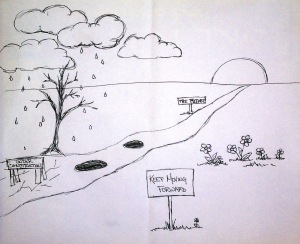Written by Cheryl Conklin
Whether you’re self-isolating or have to leave every day for work, the pandemic has probably taken a toll on your family’s mental and physical health. Adapting to all the changes that come with the pandemic isn’t easy, but luckily, there are many ways to incorporate healthy habits into your lives so you can feel your absolute best. Below, learn what your family can do to stay positive and healthy as you navigate the new normal.

Image via Pexels
Take Care of You
As a parent, your own health often is a low priority, but it’s hard to take care of everyone else if you’re not in a good place yourself. That’s why this one is first on the list. It’s hard not to feel guilty taking care of yourself first, but it’s crucial for helping your whole family thrive during the pandemic.
Practicing self-care can do wonders for your mental and physical health in any situation, but it’s even more powerful during times with so much uncertainty. Think about what activities or habits make you feel centered, and make time for them each day. You might also want to pamper yourself with a few new products to enhance your self-care routine. Self-care products can be expensive, but they don’t have to be if you look in the right places.
Check in With Your Family
Things are always changing as the pandemic evolves, so it’s important to regularly touch base with your family’s feelings. Providing a welcoming environment for conversation will encourage your children to ask questions and express their emotions. Because uncertain times like these can trigger anxiety, depression, and other mental health concerns, it’s more crucial than ever to watch out for signs that your kids or partner need help coping.
Talking things out can be therapeutic and help you grow closer. However, pandemic-induced anxiety and depression should be taken seriously. Seeking out mental health help for your family might be the best course of action if any of you are struggling to cope on your own.
Believe it or not, self-care also extends to your surroundings. According to Redfin, a cluttered home can actually create feelings of anxiety and stress, as well as trap “bad energy” that can cause problems for everyone in your family. So, take steps to eliminate clutter and keep your home tidy so everyone’s stress levels will stay as low as possible.
Get Moving
Physical activity certainly isn’t a cure-all for anxiety and depression, but it’s one of the best ways to improve your family’s mental well-being, not to mention your physical health. A lack of free time is often the biggest stumbling block in the way of regular exercise. If anything positive can be taken from the pandemic, it’s that your family probably has more time to start new routines together.
You don’t have to go far from home to get fit. In fact, many of the best fitness opportunities can be found at home or in your neighborhood. Try going for a family walk around the block every night or putting on music that will make you want to dance as you do chores together. Not only are these great ways to get your heart rate up, they’re also completely free ways to have fun.
Cook Together
Just like fitness, food doesn’t have to be expensive or extravagant to be healthy and delicious. And even though much of the world is now in a reopening phase, your family might still feel more comfortable preparing meals at home. Luckily, this is also the best move for your budget.
Chances are, you already have the ingredients you need to make fun and tasty foods at home. For example, recipes like spinach tortellini soup, skillet rice, or legume quesadillas are healthy and easy to make. By getting your kids to pitch in, you can help instill healthy habits and a lifelong love of cooking.
The pandemic can be especially hard on parents who are trying to juggle work, school, and family life all at once. Taking care of yourself, checking in with your family’s feelings, and striving for healthy diet and fitness goals are just a few of the things you can do to make it through the pandemic together.
















 An anchor woman holds her microphone steady as she reports live from ‘We have the power’ , an old mental institution where the walls should have been painted decades ago. Her voice intermingle with twenty other reporters looking seriously into the camera, pointing occasionally to the building behind them. The anchor woman turns her voice dramatically down when she arrives at the conclusion.
An anchor woman holds her microphone steady as she reports live from ‘We have the power’ , an old mental institution where the walls should have been painted decades ago. Her voice intermingle with twenty other reporters looking seriously into the camera, pointing occasionally to the building behind them. The anchor woman turns her voice dramatically down when she arrives at the conclusion.





